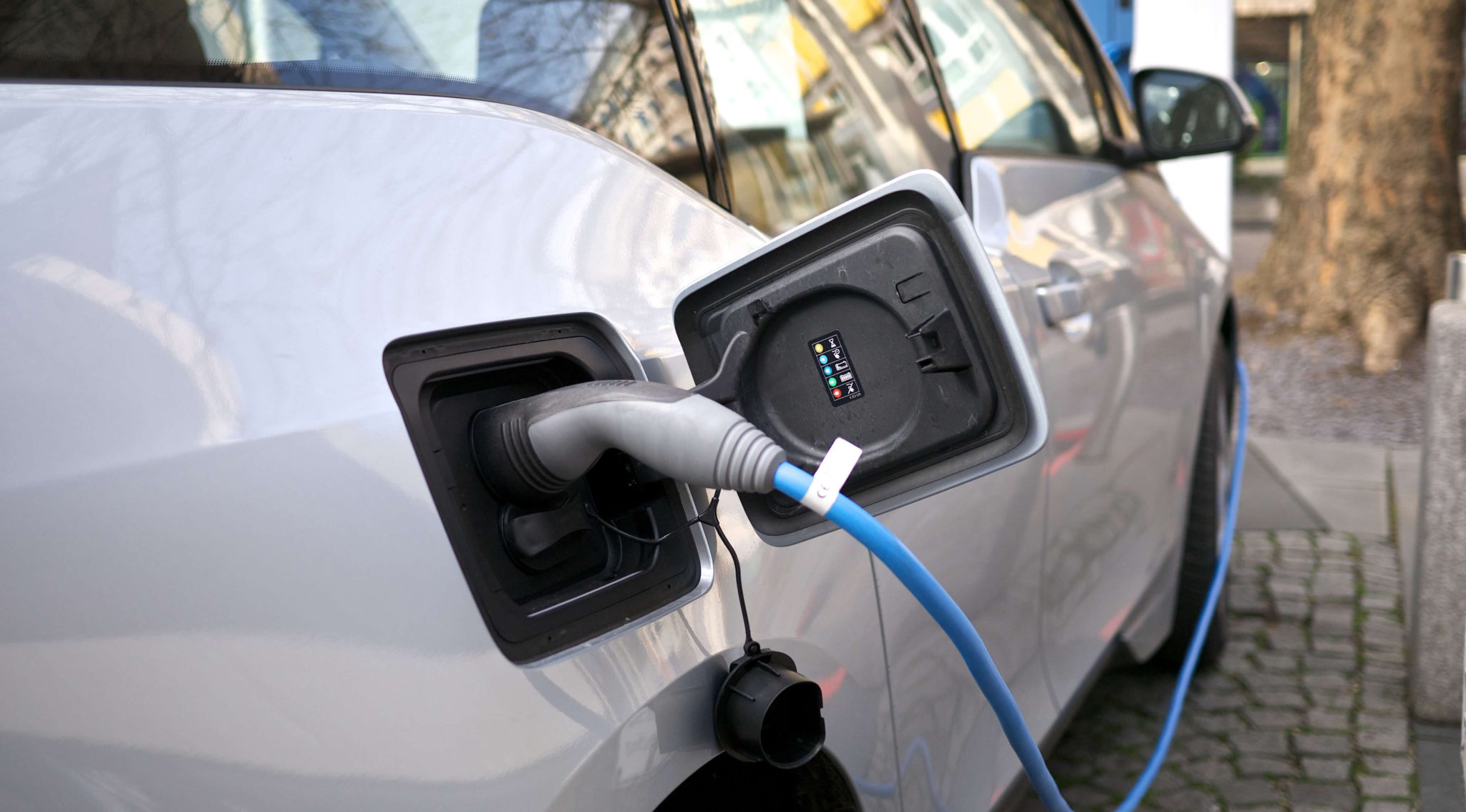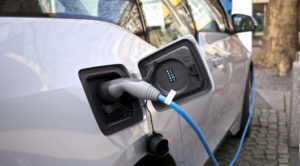Recentemente, o Acordo de Paris ganhou visibilidade extra devido à saída dos Estados Unidos da América, o segundo maior produtor mundial de gases que provocam o efeito de estufa. O acordo, assinado em 2015, tem como objetivo principal que os 195 países que o constituem, incluíndo Portugal, trabalhem para manter o aquecimento global abaixo de 2ºC pois, como ficou provado no estudo da revista Nature Climate Change, se este valor se mantiver, um quarto do planeta Terra viverá em crescente desertificação.
A indústria automóvel já se apercebeu do problema a enfrentar e é por isso que cada vez mais são comercializados os veículos movidos a eletricidade. Só no ano de 2017 foram vendidos mais de três mil e quinhentos carros elétricos, o que representa uma subida de 117% relativa ao ano de 2016.
Apesar dos carros elétricos estarem a ser utilizados cada vez mais pela população, a ideia de que os mesmos são modernos é errada. Na realidade, os primeiros modelos deste tipo de veículos foram apresentados em meados do ano de 1880, época em que dominavam o mercado três tipos de veículos: de combustão interna, movidos a vapor ou a eletricidade. Os primeiros assumiram o controlo da indústria automóvel visto que o seu combustível era facilmente encontrado e produzido e, para além disso, permitiam às pessoas percorrer maiores distâncias.
Mas, afinal, que benefícios têm os carros elétricos para o ambiente?
É isto que Orlando Duarte, pioneiro na venda de carros elétricos em Portugal e proprietário do Stand Elétrico, nos pretende explicar: “Os benefícios são vários. Em primeiro lugar, a menor poluição, pois podem poluir até menos 70% do que os carros convencionais, o que conduz, por exemplo, uma redução do número de doenças respiratórias e de vários tipos de cancro. Além do mais, se o carro elétrico for associado a uma energia limpa, teremos então um automóvel com quase 0% de emissões de dióxido de carbono. O ruído também diminui drasticamente, levando a que as cidades sejam menos barulhentas.”
Para além do ambiente nos agradecer a compra de um carro elétrico, a nossa carteira também sairá beneficiada: em primeiro lugar, a manutenção destes carros é mais barata e para além de não pagarem parquímetros em Portugal, a sua utilização é também menos dispendiosa. Da mesma forma que um carro movido a combustíveis fósseis gasta 10€ em combustível ao percorrer cada 100 quilómetros e o carro a diesel faz esses mesmos 100 quilómetros, gastando 7€, o carro elétrico percorre essa mesma distância gastando cerca de 2€. Orlando Duarte explica também que a diferença de preço entre os carros convencionais e os carros elétricos já foi muito maior. Afirma ainda que “Neste momento, um carro elétrico tem um preço aproximado de um carro a diesel. Existem até segmentos em que são praticamente ao mesmo preço.”
Em conclusão: todos devemos tentar limitar a emissão de gases de efeito estufa, o que consequentemente promoverá a diminuição do aquecimento global, ou seja, a diminuição da temperatura do planeta. Investir num carro elétrico é uma das diversas boas ações que podemos fazer pelo ambiente.
Ajudar o ambiente é ajudar-nos a nós e, por isso, é nosso dever fomentar a mobilidade sustentável.
“ELECTRIC VEHICLES: A BET ON THE FUTURE”
Global warming is a subject which tends to become progressively a present-day issue and is broached frequently in the press. Recent studies indicate that in the 21st century the average global temperatures could increase between 2 to 4,9ºC which does not respect the conditions imposed in the Paris Agreement. Surely, one of our future actions is the investment in electric vehicles. These vehicles reduce gas emissions like carbon dioxide which causes the greenhouse effect.
The Paris Agreement has recently acquired complementary visibility due to the exit of the United States of America, the second largest country generating greenhouse gases. The agreement, signed in 2015 by 195 countries, including Portugal, has the main objective to keep a global temperature rise this century below 2 degrees Celsius, since a study by the magazine “Nature Climate Change” has given proof that, by maintaining such value, one fourth of planet Earth will suffer from growing desertification.
The car-industry has already perceived the problem it will have to confront, which is why a growing number of electric cars are being commercialized. Within 2017 more than 3.500 electric cars have been sold, which represents a growth of 117%, comparatively to the year of 2016.
Although electric cars are being progressively used by the population, the concept of their “modernity” is false. As a matter of fact, the first models of this type were presented in the 1880’s, a time in which the market was dominated by three types of vehicles: either of internal combustion, vapour or electricity. The former assumed control of the industry because its fuel was easy to find and to produce while allowing people to drive for larger distances.
But, after all, what are the benefits that electric cars can contribute to our environment? This is what Orlando Duarte, a pioneer in selling electric cars in Portugal, and proprietor of the” Stand Elétrico” tries to explain: “The benefits are varied. First, a lesser level of pollution, as they can reduce air pollution up to 70% of the conventional cars, which, for example, may lead to a reduction of respiratory diseases and several types of cancer. Moreover, if the car is associated to a “clean energy”, we obtain a car with almost 0 % of carbon dioxide emissions. This car also presents a drastic reduction of noise, making towns less loud”.
Besides having a positive effect on the environment, the purchase of an electric car benefits our purse: the maintenance of these cars is less expensive, they don’t need to pay parking charges in Portugal, adding to the fact that using them is also less expensive.
The same way a car moved by fossil fuels consumes 10 € for any 100 km, and a diesel car will consume 7€, an electric car only consumes about 2 € for the same distance. Orlando Duarte also explains that the difference of cost for conventional cars and electric cars was much higher than nowadays. He also states that, “Presently, an electric car costs the same as a diesel, and there are some segments which have practically the same prices.”
To conclude: we should all try to reduce the emission of greenhouse gases, which will, consequently, promote the reduction of global warming, which, in its turn, will result in the reduction of our planet’s temperature. Our investment in an electric car is one of the many positive actions which we can engage in favour of the environment.
Helping the environment means helping ourselves, and that is why it is our duty to promote sustainable mobility.





You must be logged in to post a comment.